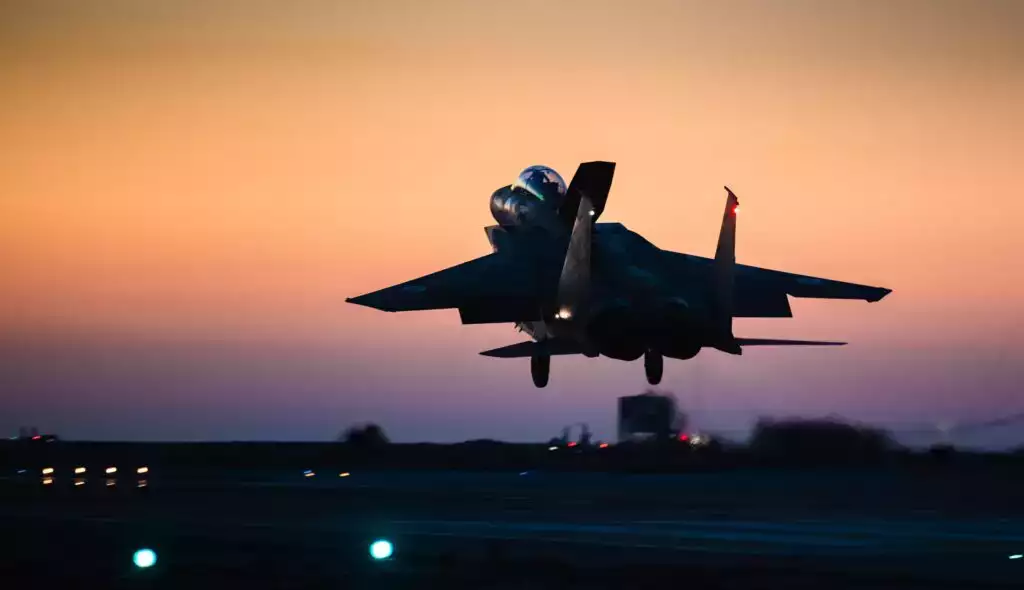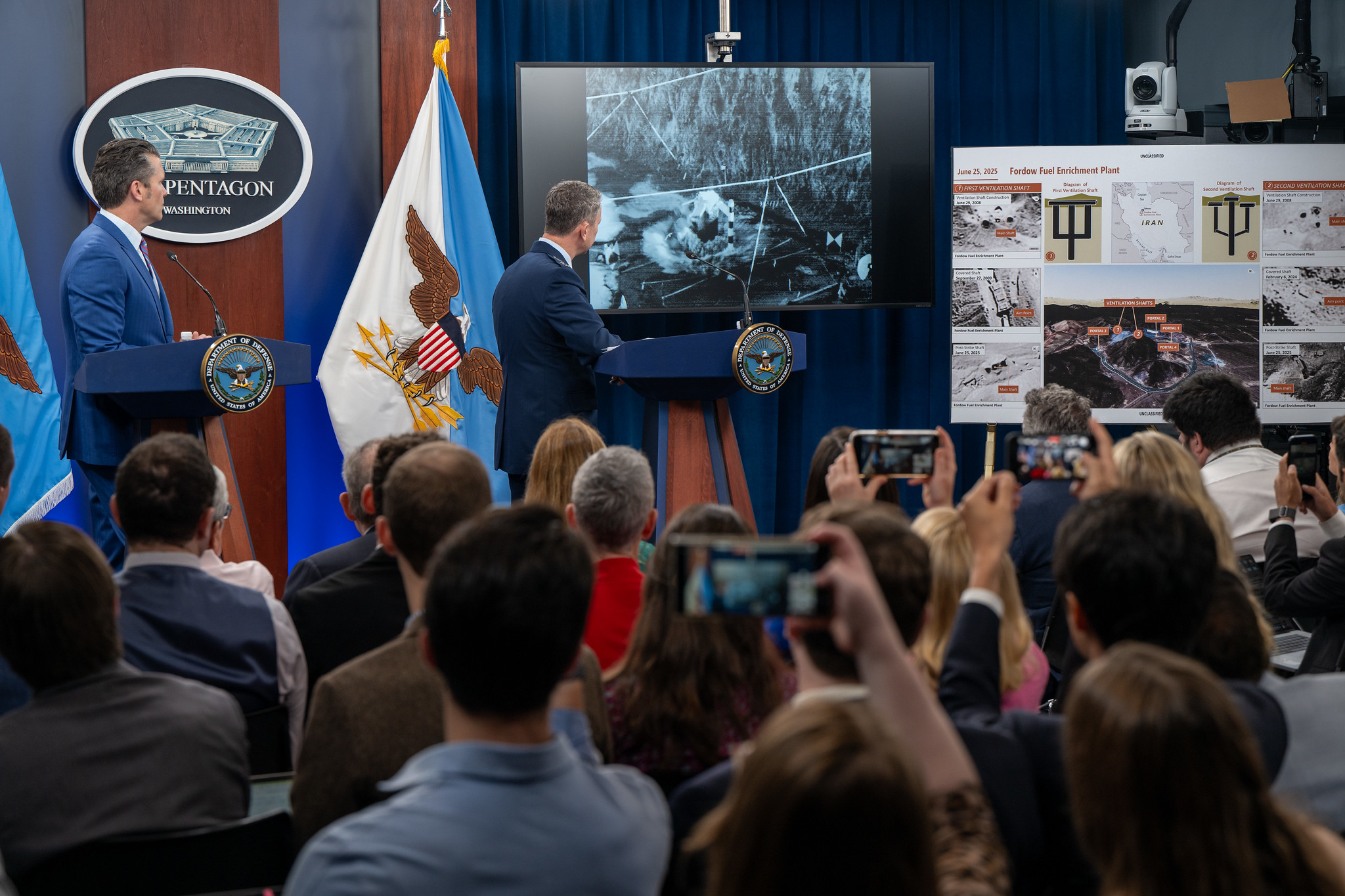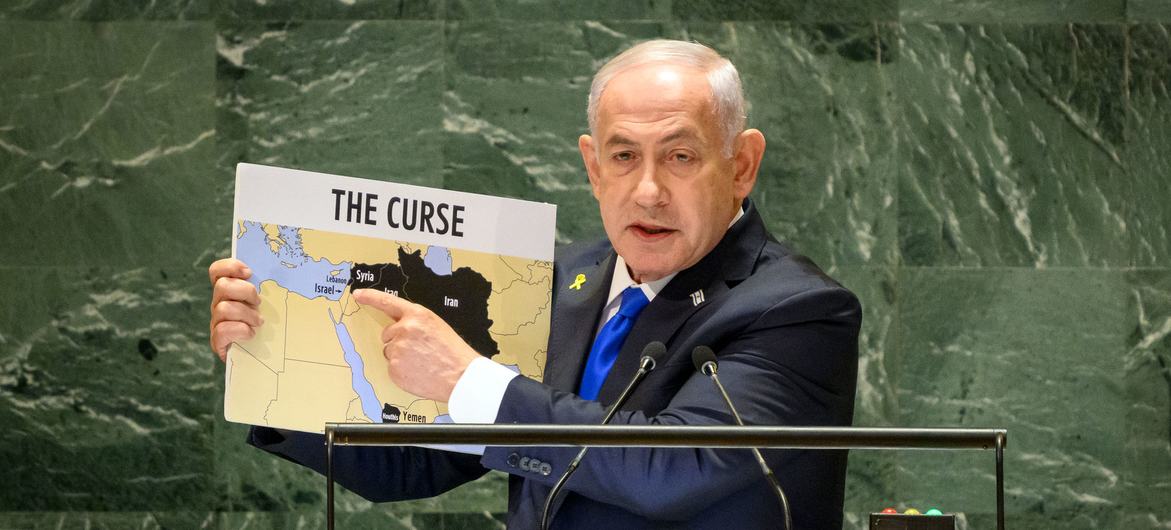Another of what may become many in-theater confrontations between Turkish and Israeli militaries inside Syria took place on Sunday when Israeli jets were targeted with electronic interference from Turkish F-16s that had been scrambled to intercept them.
Israeli officials said there was no direct conflict between the planes, and that Tel Aviv maintains the “full freedom of operation” to carry out attacks inside Syria. Turkish news outlets are mostly quiet regarding the incident, apart from one opposition-based daily called Sözcü. At the time of publishing, neither AA nor Daily Sabah has mentioned the entanglement, but it isn’t the first time that these two regional heavyweights have been in a scuffle of late.
Since the fall of the Assad government and the seizure of the country by terrorist group Hayat Tahrir al-Sham (HTS), Israel has conducted hundreds of airstrikes against military positions and property once held by the national military, presumably to guarantee HTS lacks any sophisticated equipment that could be used to strike inside Israel.
Türkiye has been by far the most supportive voice and power behind the HTS-led regime, and was a major backer of forces within the loose coalition that led to Assad’s downfall. HTS’ Sunni alignment is preferable to the Sunni-majority Türkiye, and is seen as a counterweight to the Kurdistan region’s historic support of Kurdish terrorist elements inside Türkiye.
Pursuant to this support, and on April 1st, Turkish military forces announced the intention to take control of the T4 Airbase near Homs. On the following two days, Israeli Air Force assets destroyed Assad-era “military bases and facilities” with Syrian authorities saying dozens were injured in the attack which “completely destroyed” the base.
Jerusalem Post reported the strikes were intended to send a message to Türkiye that “we will not allow you to establish a presence in Syria,” a source is supposed to have said.
At the time, Israeli Foreign Minister Gideon Sa’ar, during an official visit to Paris, stated outrightly that the Netanyahu regime opposed any attempt by Türkiye to influence the country which separates it from Israel.
“They are doing everything to turn Syria into a Turkish protectorate. We opposed the Iranians when they tried to do this, and we oppose the Turkish attempt to do it now”.
Turkish response, strategic concerns
There are major concerns inside Ankara that Israel is looking to utilize American backing to become a total regional hegemon. In the middle of this power dispute is the complexity of American allegiances and the danger they come with. Türkiye used to be one of the largest regional recipients of US weapons, and she’s also a NATO member.
Israel is protected by a US security umbrella law known as Qualitative Military Edge (QME), which mandates that the executive branch take all actions necessary to ensure that Israel has a superior advantage in every domain of military technology compared to any other regional entity.
Writing for the Daily Sabah, Haydar Oruç details that it was because of the QME that Ankara was forced to buy Russian-made S-400 missile defense systems—a violation of NATO membership rules against integrating adversary-made tech into a NATO member’s military. The top of the line NATO air defense system is the US-made Patriot missile battery, which Israel also uses. Israeli officials leveraged QME law to block the sale of Patriot missile systems, and then again to block the sale of F-35 fighter jets, to Ankara.
The purchase of the S-400s also led to the sanctioning of Ankara under the Countering America’s Adversaries Through Sanctions Act (CAATSA), representing the first time a NATO member had sanctioned another member.
“The F-35 aircraft requested by the UAE, which normalized relations with Israel under the framework of the Abraham Accords and established close ties with Israel since then, were also blocked by Israel,” Oruç writes. “It was revealed that Israel advised the US administration not to sell the F-35s to the UAE”.
While Israel has been equipped with all kinds of modern weapon systems, other countries in the region have only had access to older weapons or weapons that do not pose a threat to Israel. The only exception is Türkiye, which has recently made a breakthrough in its defense industry.
Türkiye has been relatively freed from its dependence on the West thanks to its domestic and national defense industry products. These developments have worried Israel, especially because of the military bases that have been rumored in recent days to be set up in Syria.
Oruç described this rumor and worry, but it has reportedly already become a reality as early as April 7th, when ACG reported that Turkish forces were in the process of reinforcing the T4 base.
“Israel and Turkey have both been working on carving out their respective spheres of influence in Syria since the Assad government was ousted, but both have gone very different directions,” writes Dave DeCamp at Antiwar. “Turkey has been working closely with the new Islamist government in Damascus, while Israel has been invading and occupying part of the south”.
Israel’s march into the south has been justified on the grounds of protecting Israel, but also the Druze, an ethnic and religious minority that is working to maintain cooperation with the new HTS government. A large Druze community also exists inside Israel, and “honor” for that community was given by Israeli Defense Minister Israel Katz as a reason for bombing parts of Syria including regime forces and areas adjacent to the presidential palace where HTS leader and former jihadist Mohammad al-Jolani resides as interim-president.
Haaretz reporting on the incursions by Israel spoke to Druze religious and political leaders who explained that they see themselves as an inseparable part of a united Syria, and not a separate body to be divided for protection’s sake.
WaL has reported that far right elements of the Netanyahu Zionist regime are actively looking to form “Greater Israel” which they say includes Damascus, something Türkiye would almost certainly escalate to limited war to avoid, and something which those far right elements must now see as a risk and potentially insurmountable obstacle in their plan. WaL
We Humbly Ask For Your Support—Follow the link here to see all the ways, monetary and non-monetary.
PICTURED ABOVE: An Israeli F-15I takes off from an Air Force runway. PC: IDF spokesmen, released.



